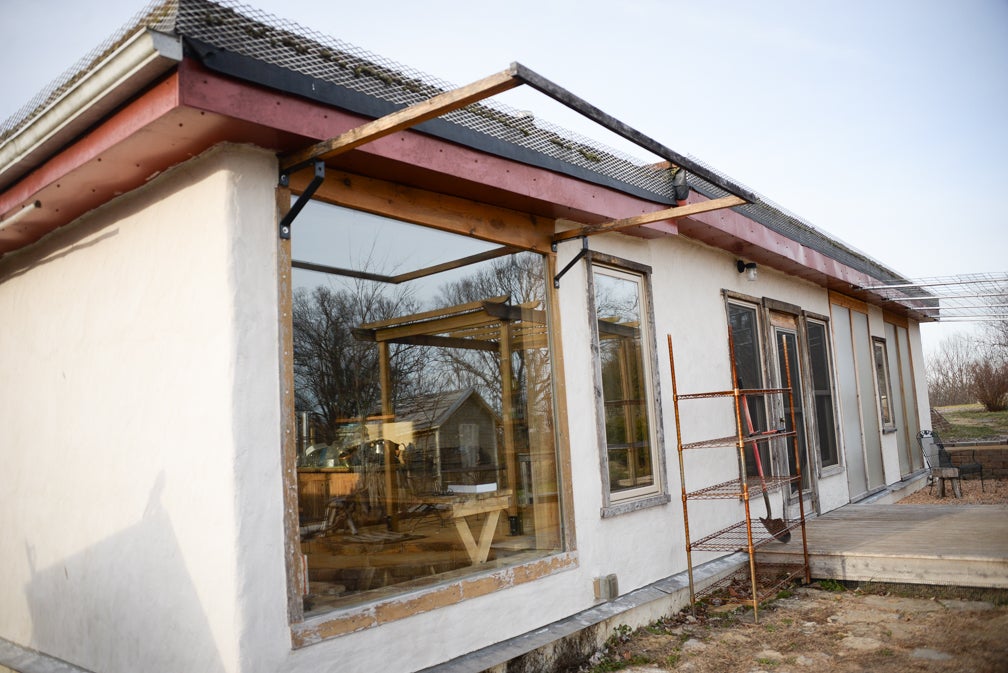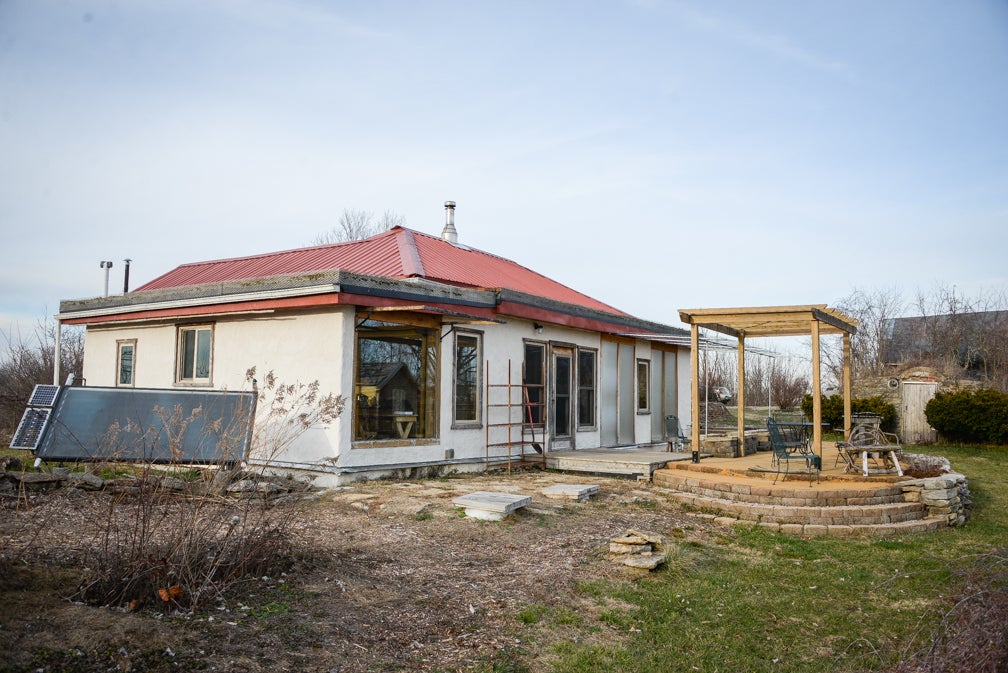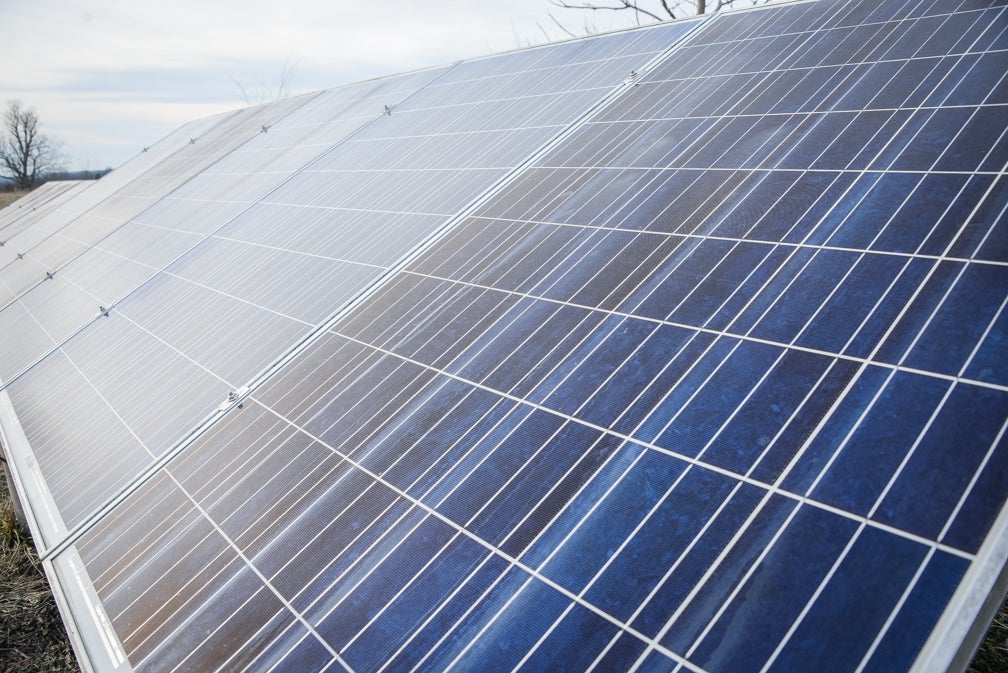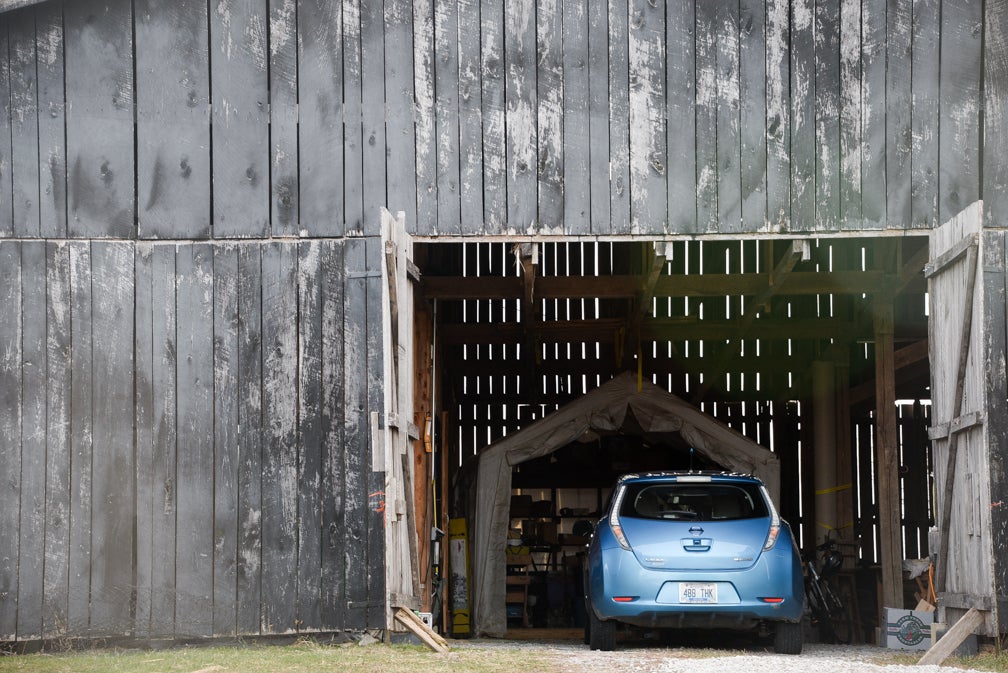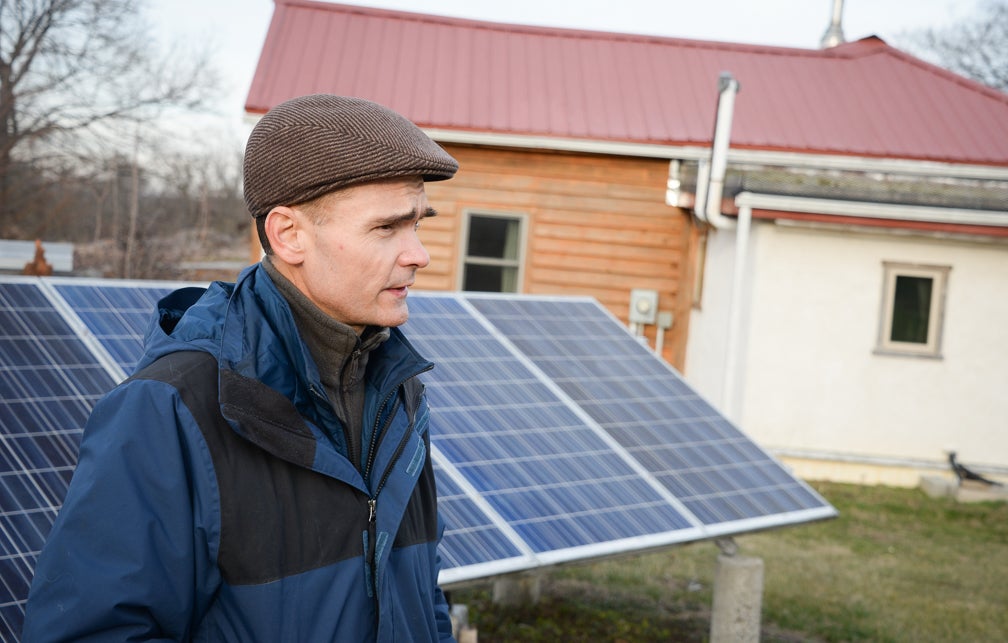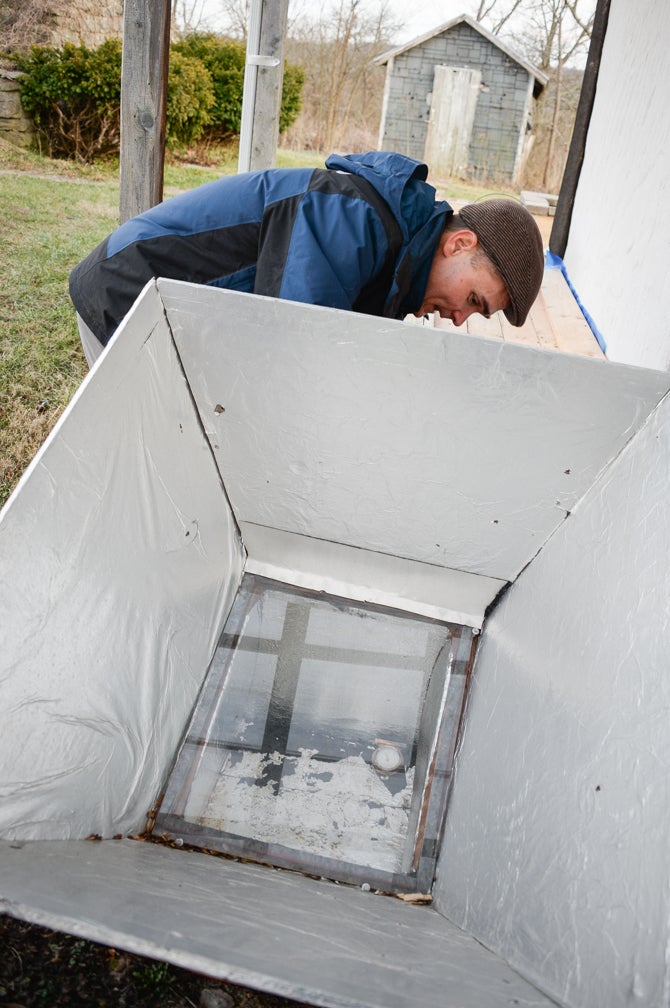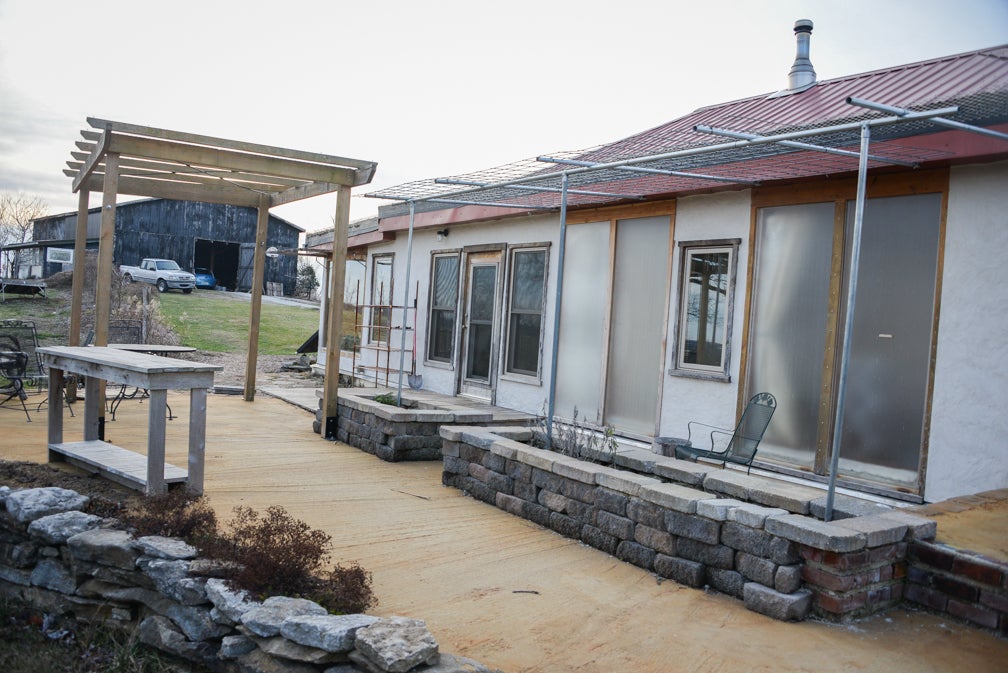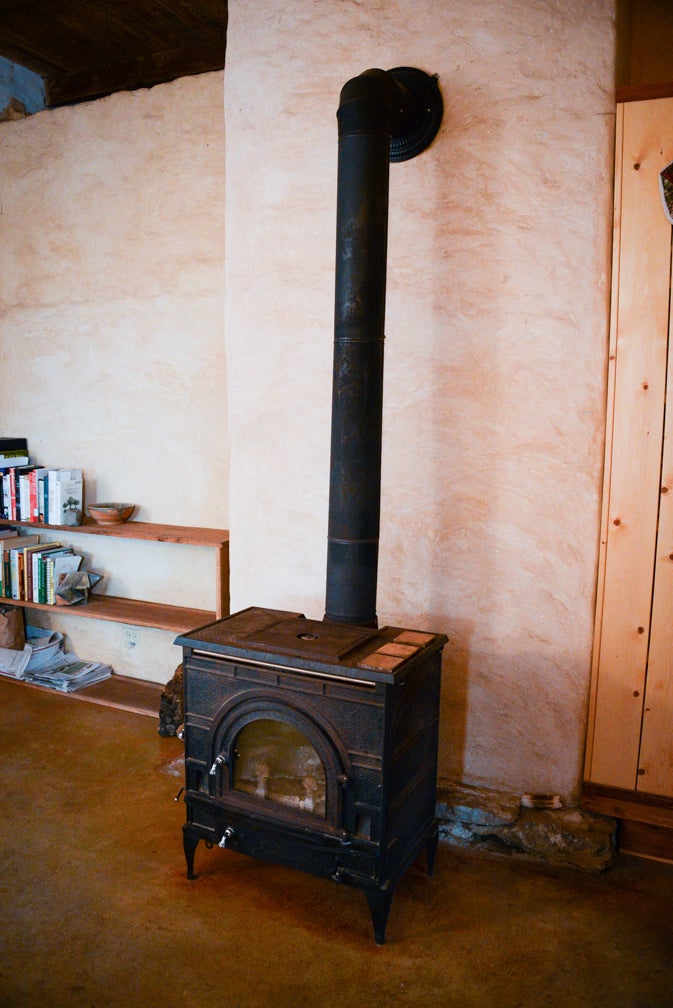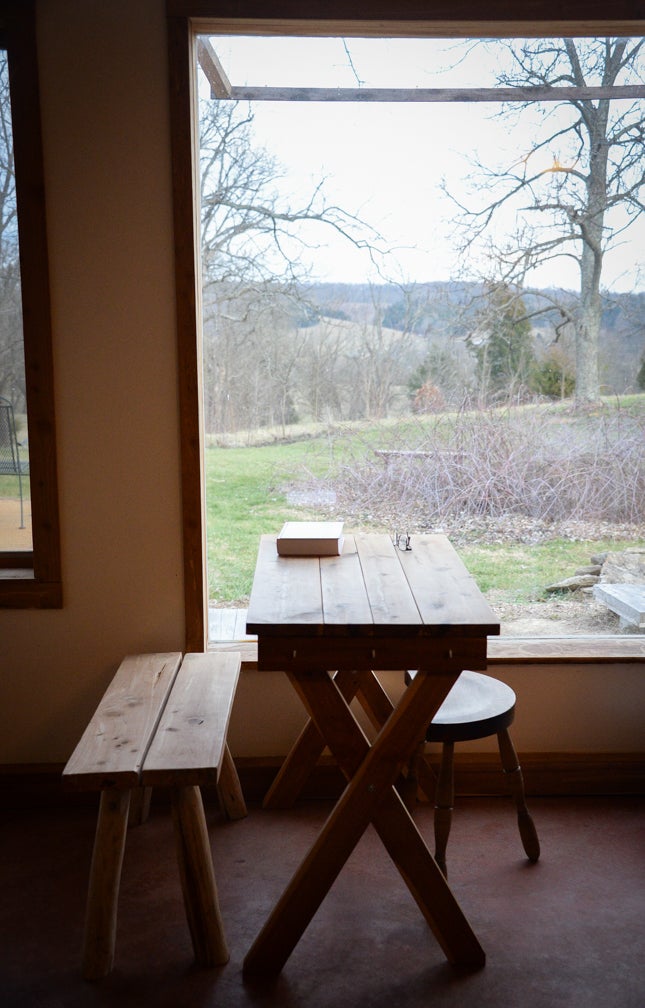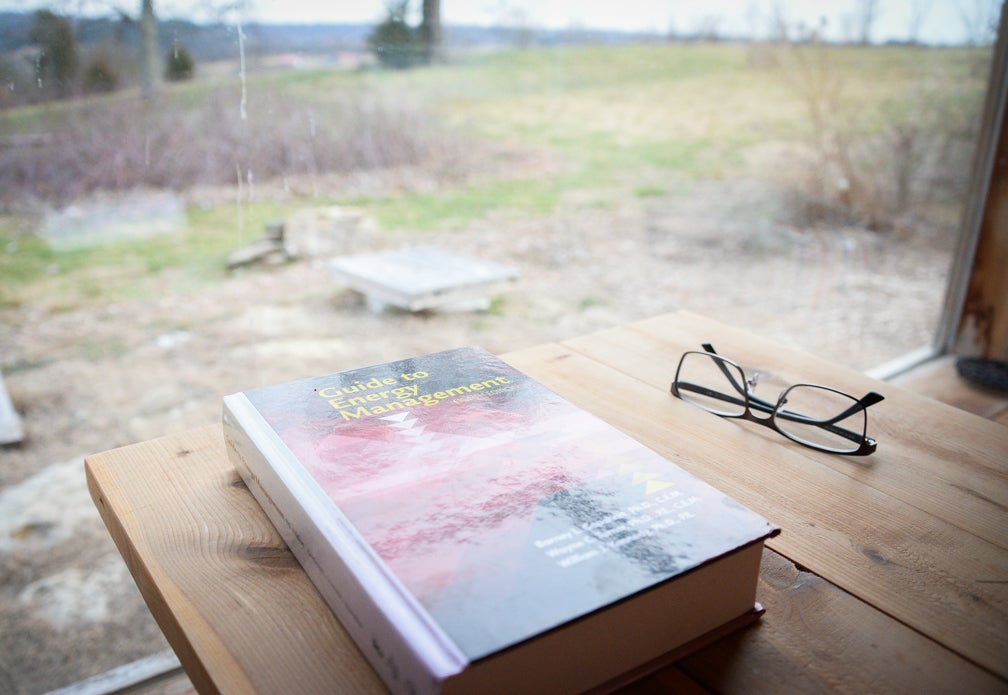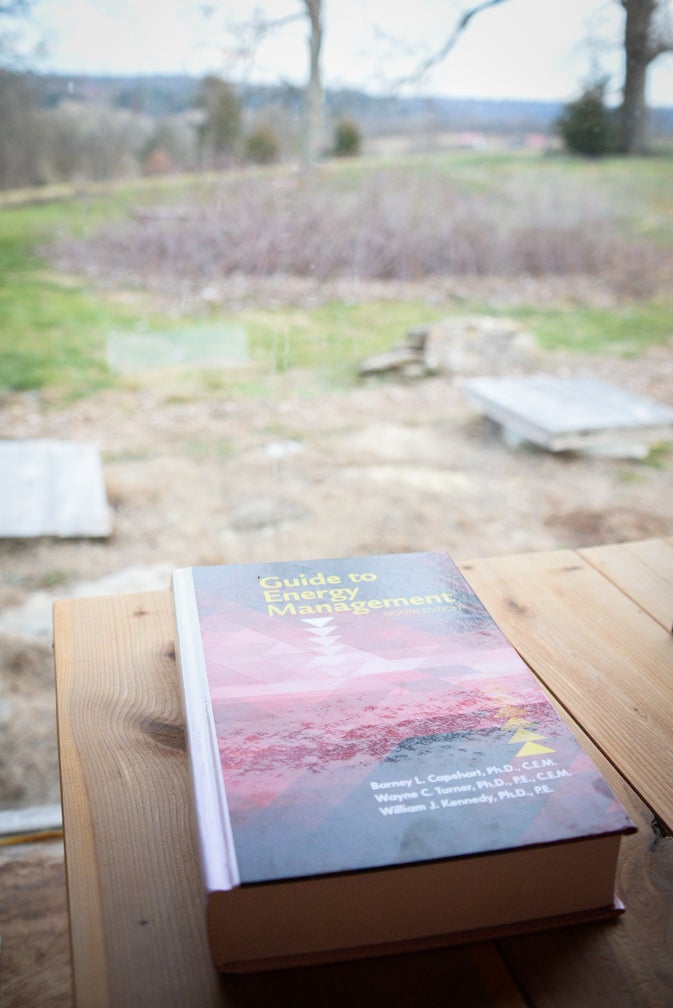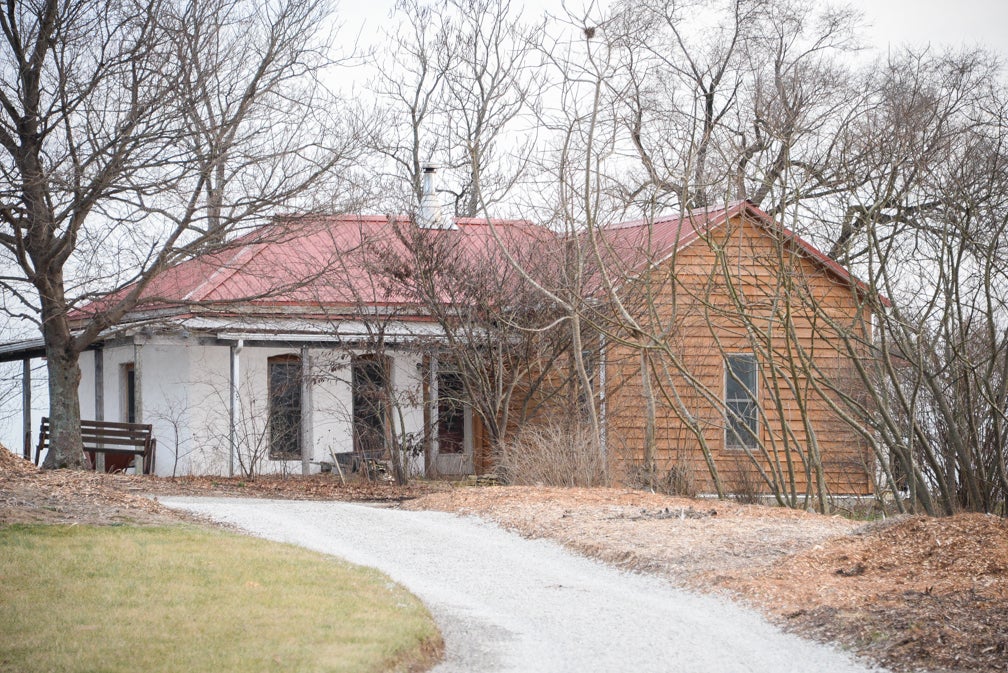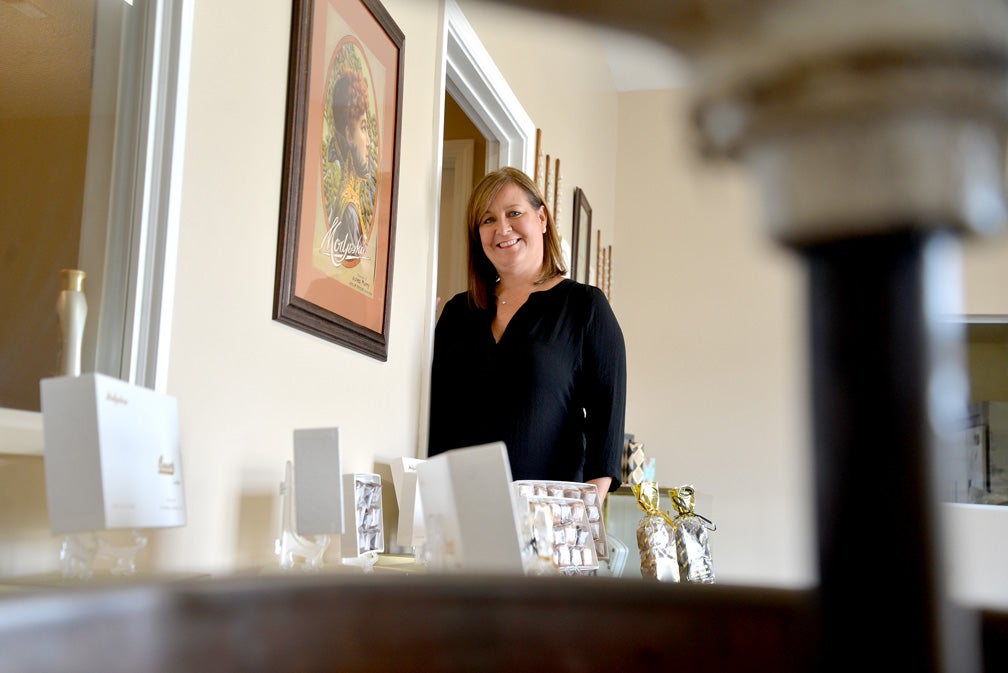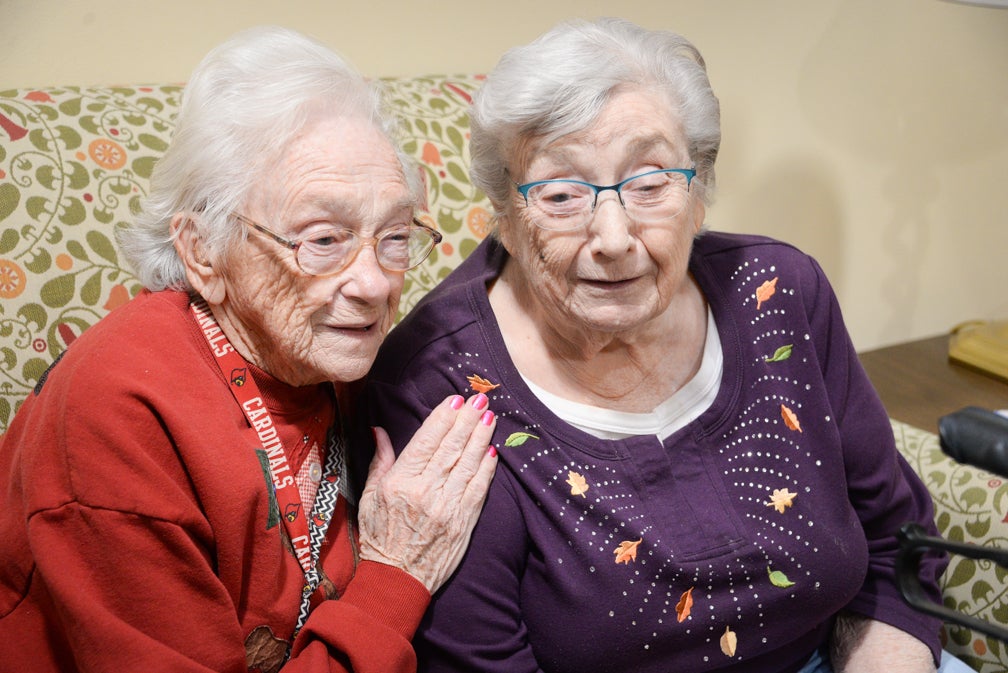As the sun sets and temperatures drop in Frankfort, Andrew McDonald’s house is warm inside.
His home, a renovated farmhouse, is usually heated with a wood stove. But on this night, as the temperatures hover in the mid-40s, the wood stove hasn’t been lit yet. In fact, it’s been out since about 9 in the morning.
The home’s heat comes from the sun’s rays heating up the roof and walls, trapping the heat inside. And the electricity in the house comes from an array of solar panels outside the home.
Everything about the house is designed to be energy efficient. From the windows on the front of the house that let in heat and light in the winter to the awning over the patio in the same area that is covered with vines to provide cooling shade in the summer, the house is what McDonald has wanted since graduating from college.
“When I was in college in Buffalo, New York …. I took some classes that raised my awareness about what was going on in the world and how dire the situation was. Also, I became aware of how those environmental problems affect people. There’s a lot of suffering caused by those problems,” McDonald said. “Also as I became aware of the problems, I became aware of solutions. And I became aware that we could do things better and that we could live well using fewer resources …. and it was a matter of making difference choices.”
McDonald’s choice was to create a home that was net-zero — meaning that the total energy used by the building on an annual basis is roughly the same as the amount of renewable energy created on the site of the building.
Located on a farm in Frankfort off Owenton Road, McDonald’s house sits on sprawling acreage that is home to not just his and his wife’s house, but also their farm.
“We wanted good farmland relatively close to Frankfort and a place where we could put into practice our sustainable building practices, as well as our sustainable agriculture business,” he said. “There was an old farmhouse here when we bought the place. It needed a lot of work. There was a lot of severe rain damage and termite damage. So we removed about half of the house and renovated what remained using passive solar design strategies.”
Because the house faces south east, he said, they are able to heat the home using the sun’s warmth in the winter. During the summer, when the sun is more in the northeast, strategies like vining plants on trellises outside, shade windows and prevent the house from heating up.
It was a dream that started in college, he said.
“Starting from when I was in college 30 years ago, I had a strong concern for the environment, and I became aware of climate change at that time. I have been doing work related to protecting the environment for 30 years,” he said. “My work took me into the areas of appropriate technologies, which is technologies that are suited to the place and intended to empower people while having a minimal environmental impact … and I learned about the various technologies we can use to live more simply and with lesser impact on the environment. After getting my degree, I wanted to put it into practice in my own home.”
McDonald works as a consultant with Earth Tools, a company that makes hand tools and walk-behind tractors for small farmers looking to work more sustainably.
His advice for those who want to move toward more energy efficiency? Even small changes can help.
“You don’t have to get the house to net zero in order to get it more efficient. Everything you do to make your house more efficient, you’re going to save on your electric bills and do more for the environment,” he said.
Whether that is installing solar panels, being mindful of your choices, growing a garden, or simply shopping local and buying from local farmers, even small changes can make a big impact.
For those interested in coming up with a plan to reduce their energy consumption, McDonald suggested calling the Frankfort Plant Board. Customers of the Plant Board can request an energy audit, where Plant Board employees will come and inspect a house and show customers what they can do to conserve energy.
McDonald said his house, powered by a small array of solar panels and served by a solar water heater, took him about four years to renovate. But that solution may not be for everyone. His, he said, was a labor of love.
And his house stands as a testament to what is possible when we make the choice to make a difference.
“We can do things differently. We’re not just fated to destroy the earth,” he said.



